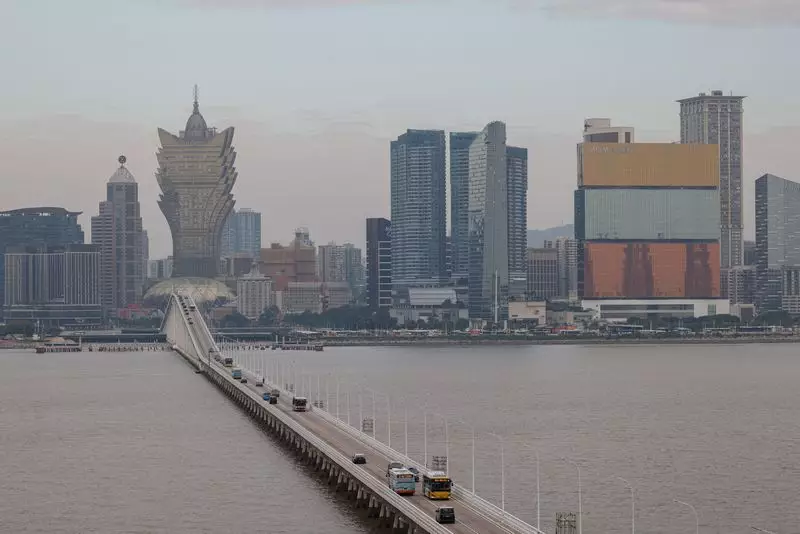In a significant display of recovery, Macau’s casino revenues have surged, recording an impressive 23.9% increase in 2024, bringing the total to 226.8 billion patacas (approximately $28.35 billion). While this growth is commendable, it still falls short of pre-pandemic figures, which reached 292.5 billion patacas in 2019. The sharp increase was announced by the Gaming Inspection and Coordination Bureau and aligns positively with government expectations. However, this trend also starkly reveals Macau’s over-reliance on the gambling sector, highlighting an urgent need to explore new economic avenues.
Despite the overall revenue increase, December 2024 marked a troubling 2% decline in earnings compared to the previous year. This downturn cannot be ignored, especially as it coincided with heightened security measures during a pivotal visit from Chinese President Xi Jinping. This visit commemorated the 25th anniversary of Macau’s return to Chinese sovereignty and spotlighted the region’s pressing need for economic diversification. The decline during such a significant period raises questions about the long-term sustainability of Macau’s economy solely relying on casino revenues.
During his visit, President Xi emphasized the need for Macau to broaden its economic landscape. He called for courage to venture into new industries while strengthening ties within the Greater Bay Area, encompassing cities like Hong Kong and Guangzhou. Such integration could provide Macau with avenues for growth beyond gambling, inviting industries that may align with technological advancements or tourism enhancements. The potential for economic diversification rests not only on local initiatives but also on strategic alignments with broader national development strategies.
Xi’s visit also underscored the importance of forging connections with Portuguese-speaking nations and engaging with the Belt and Road Initiative, a bold infrastructure endeavor by China. This engagement could enable Macau to harness new trade routes and build bridges with emerging markets. The pivot towards international cooperation could provide crucial support for local businesses seeking to expand their horizons, thereby reducing the massive economic dependency on the gaming sector.
As Macau grapples with its identity as the only legal gambling hub in China, the recent developments serve as a wake-up call. The heavy reliance on casinos has long been a double-edged sword, making the economy vulnerable to fluctuations influenced by both domestic and international factors. The pandemic further exacerbated these vulnerabilities, curbing the influx of tourists, particularly from mainland China, who dominate the high-roller segment.
While 2024 showcases a hopeful resurgence in casino revenues, it starkly underlines the critical necessity for Macau to innovate and diversify its economic portfolio. The region stands at a crossroads, with opportunities and challenges ahead. Embracing new industries and fostering international collaborations could pave the way for a sustainable future, lessening the over-dependence on gambling and ensuring economic resilience in the years to come.

